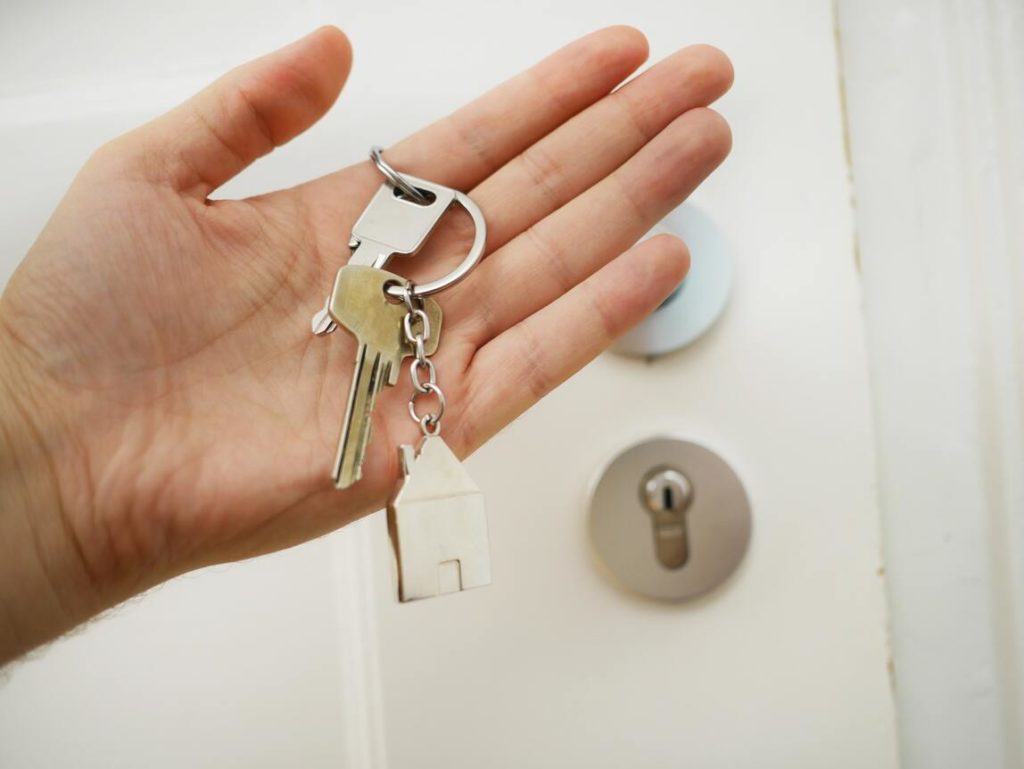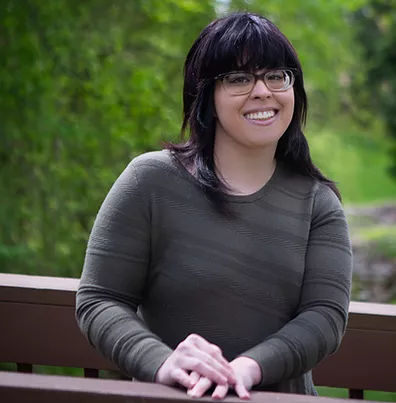Mortgage When the Borrower Dies
If you’ve recently had a loved one pass away, you may be wondering what happens to a mortgage when the borrower dies. Unfortunately, there is no one cut-and-dried answer to this question. It depends on who applied for the loan and whether or not the surviving family members want to keep the property.
In light of that, we’ve created a guide to this situation below. Keep reading to learn what happens to mortgage debts after the homeowner passes away.

Key takeaways
- Under federal law, a relative who inherits real estate has the right to assume the mortgage and make payments without requalifying.
- If no one assumes responsibility for a mortgage, the lender is within their rights to pursue foreclosure.
- If you sell an inherited property, you can keep the equity left after the mortgage is paid off.
What happens to your mortgage when you die?
Typically, your state will take care of resolving your debts before any assets are passed on to family members and other loved ones. However, the process works a bit differently with mortgage debts. Put simply, unless you took out your mortgage loan with a co-borrower, there is no law that says anyone has to take over the mortgage payments and pay off the loan.
Under federal law, lenders must allow family members the freedom of assuming the mortgage loan after death, which means that, if a family member should inherit the home, they can automatically continue making the mortgage payments without going through the underwriting process to qualify for the home loan first.
When to notify the lender of the borrower’s death
It’s best to let the lender know about the borrower’s passing once things have settled a bit and you have the death certificate in hand. There’s no strict deadline, but reaching out sooner rather than later helps avoid any confusion or complications with the mortgage. Early communication can smooth out the process, whether it’s keeping up with payments, figuring out if refinancing is an option, or understanding how insurance policies like mortgage protection might come into play. It also opens the door to discussing whether someone will take over the mortgage. Keeping the lender in the loop from the get-go can make a tough situation a little easier to manage.
Who is responsible for a mortgage after the borrower dies?
As we mentioned above, if the borrower dies, the requirements for assuming the mortgage after death will depend on whether or not there was a co-signer or co-borrower.
Foreclosure after death of borrower
If the homeowner dies and no one assumes the responsibility for the monthly payments, the mortgage lender is within their rights to pursue foreclosure after the death of the borrower.

How to assume a mortgage
Assuming a mortgage means you take over the existing mortgage of a home from the current homeowner, including the loan’s remaining balance, its interest rate, and the remaining payment period. Here’s how to go about it:
- Review the mortgage terms: First, check if the mortgage is assumable. Not all mortgages can be transferred; it depends on the terms set by the lender and the type of loan. Look for a “due on sale” clause, which requires the loan to be paid in full upon transfer of property ownership, making assumption not an option.
- Get approval from the lender: Assuming a mortgage requires the lender’s approval. You’ll have to apply, much like you would for a new mortgage, and pass the lender’s credit and income checks. The lender wants to ensure you’re financially capable of taking on the mortgage payments.
- Negotiate terms with the seller: If you’re assuming the mortgage as part of a property purchase, you’ll need to negotiate with the seller. The deal will likely involve paying the seller any equity they have in the property, which is the home’s value minus the mortgage balance.
- Handle the paperwork: Assuming a mortgage involves a fair bit of paperwork, including a new deed and possibly amending the existing mortgage document. You might need a lawyer to help with this to ensure everything is legally sound and properly documented.
- Pay any fees and closing costs: There could be various fees associated with mortgage assumption, such as processing fees, credit report fees, and potentially a new appraisal. Closing costs might also apply, similar to closing on a new mortgage.
- Update the property’s insurance and taxes: Finally, make sure to transfer the homeowner’s insurance policy into your name and notify local tax authorities about the change in ownership. This ensures you’re properly billed for taxes and the home is covered under your name for insurance purposes.
What happens to a mortgage when one spouse dies?
To start, assumption of a mortgage after the death of a spouse is common because typically the surviving spouse applied for the loan with the deceased individual. In this scenario, the surviving spouse would need to prepare to assume the loan. They would be responsible for continuing to make mortgage payments.
In truth, the above scenario is why many couples invest in life insurance. That way, if one spouse dies, the other can use the life insurance payment to pay off the mortgage. However, in the event that you have a reverse mortgage, you will not be responsible for paying off the mortgage until the last borrower dies or is unable to keep living in the home.
What to do as the heir of a home with a mortgage
On the other hand, if you were not a co-borrower on any of the deceased’s home loans, you’re under no responsibility to assume the mortgage. In this case, you have three options:
- You can decide to keep the home: At that point, you would ask the mortgage lender about transferring the mortgage after death. After that was done, you would assume responsibility for making the remaining mortgage payments.
- You can sell the property: if you decide to sell the home, the mortgage would be paid off in full upon the sale and you would get to keep any excess proceeds.
- You can do nothing: If you decide not to take any action, eventually, the mortgage lender will foreclose on the property. Keep in mind that foreclosure can occur even if your name is on the deed but not on the mortgage at the time of death.

What to do as multiple heirs of a home with a mortgage
When multiple heirs inherit a home with a mortgage, there are several ways through which they could manage the situation. Some of these ways are explained below.
- Keep the house and share responsibility: The heirs can decide to keep the property, with everyone contributing to the mortgage payments and upkeep. This requires clear agreements on how costs are shared and how the property is used.
- Refinance the mortgage: If the heirs want to keep the home but the existing mortgage terms aren’t favorable or require adjustment to fit the new ownership structure, refinancing might be an option. This could involve one or more heirs taking the mortgage under their names, depending on who qualifies for refinancing.
- Sell the home: Selling the property is a common choice, especially if the heirs are unable to agree on keeping the house or if none of them wants to live in it. The proceeds from the sale can then be used to pay off the remaining mortgage, with any leftover funds distributed among the heirs.
- Buy out other heirs: If one heir wants to keep the home but others do not, the interested party can buy out the others’ shares. This might involve taking a new mortgage to finance the buyout.
- Letting go: Where the mortgage is underwater (the home is worth less than the outstanding mortgage) or if the financial burden of keeping the home is too great, the heirs might decide to let the lender foreclose.
What happens to a mortgage when the lender dies?
It’s also worth discussing what happens to a mortgage when the lender dies. Again, the answer to this question depends on how the deceased individual’s estate is handled. In some cases, you will owe your remaining mortgage payments directly to the lender’s estate.
However, in other cases, the estate may sell the debt to another loan servicer. In that case, you would then be responsible for paying the new loan servicer.
The bottom line
At the end of the day, what happens to a mortgage after a borrower dies depends on what has to happen to the property. For example, if you want to keep the property in the family, estate planning is going to be key. In this case, you’re going to want to designate a beneficiary for the property, ideally someone who will be able to afford the mortgage payments.
However, if you are less concerned with keeping the property, the person managing your affairs can simply sell the home and use the proceeds to pay off the mortgage loan.
Frequently Asked Questions
What happens to a mortgage when someone dies without a will?
When someone passes away without a will, their estate, including their mortgage, goes through a legal process known as intestacy. The specific rules of intestacy vary by location, but generally, the estate is distributed to the deceased’s next of kin, as dictated by law. This means the responsibility for the mortgage and the property it’s attached to could pass to a spouse, children, or other relatives, depending on the jurisdiction’s hierarchy of heirs.
What happens to a joint mortgage when someone dies?
When one party in a joint mortgage passes away, the responsibility for the mortgage typically shifts entirely to the surviving individual. This means the surviving co-borrower becomes solely responsible for continuing the mortgage payments under the original loan terms. The transition is generally straightforward, as joint mortgages are designed with the understanding that if one borrower dies, the other takes on the full obligation. There’s no need to requalify for the mortgage; the surviving borrower just continues with the payments. However, if the surviving borrower finds it challenging to keep up with the mortgage alone, they might consider options like refinancing for more manageable terms, selling the property, or exploring any applicable insurance policies, like mortgage protection insurance, that might help cover the loan balance.
Do heirs need to requalify the mortgage?
When heirs inherit a property with an existing mortgage, they generally do not need to requalify for the mortgage immediately. Federal laws allow heirs to assume the mortgage under the existing terms without needing to prove their creditworthiness right away. This means the mortgage can often be transferred to the heirs without the need for a new application or qualification process.


